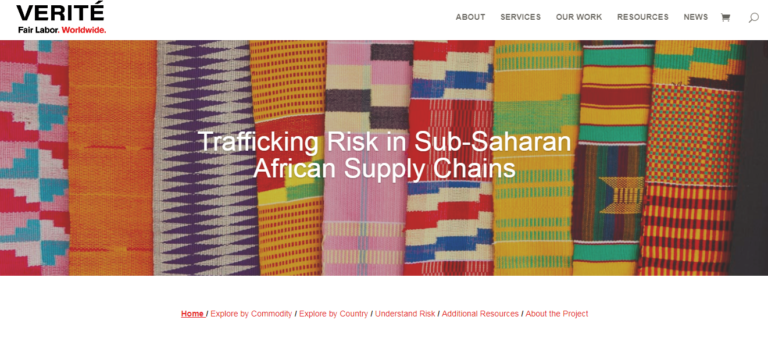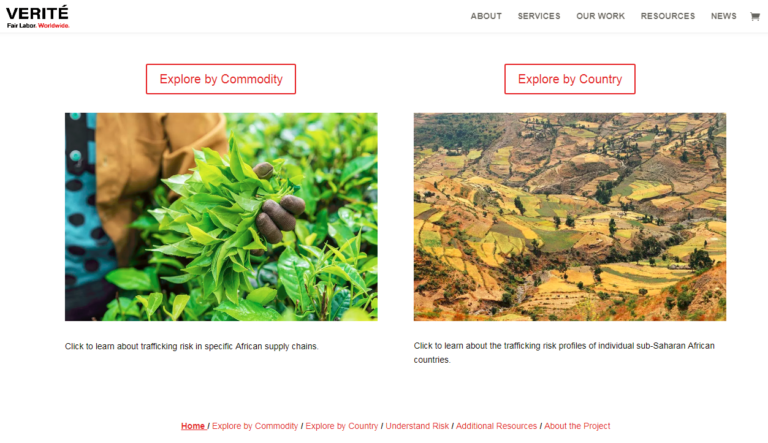Verité‘s new web resource, www.verite.org/africa, is developed to help users understand the risk of human trafficking associated with global supply chains operating in sub-Saharan Africa.

The sub-Saharan region of Africa has acted as a supplier of labour and raw materials to the rest of the world for centuries, often under terms that have resulted in harm to African people and nations. Companies and governments have both an ethical and a legal responsibility to minimize the risks to human rights associated with global economic activity in Africa, including the risk of human trafficking.
The website Trafficking Risk in Sub-Saharan African Supply Chains is the product of a two and a half year-long research project implemented by Verité, in partnership with the American Bar Association Rule of Law Initiative (ABA ROLI) and the Solidarity Center, with funding from the U.S. Department of State’s Office to Monitor and Combat Trafficking in Persons (JTIP).

The core of the website consists of a searchable set of 22 reports on key export commodities produced in the region, and of 49 reports on all the individual sub-Saharan African countries. These materials provide information about industry and national characteristics relevant to trafficking risk, as well as an analysis of specific trafficking risk factors associated with each commodity and country.
In addition, the site provides guidance on understanding trafficking risk, and resources for companies, lawyers, and others interested in establishing compliance systems and other programming to prevent and address trafficking risk within global supply chains.
The approach and content reflected in www.verite.org/africa builds upon a previous cooperation between Verité and JTIP to create the Responsible Sourcing Tool website, which helps companies understand trafficking risk in their supply chains based on the characteristics of the economic sector or countries in which they operate, as well as providing model compliance tools and various other resources. The new Africa site complements the resources presented through Responsible Sourcing Tool by offering a framework for grounding sector-based risk analysis within specific national contexts, helping users evaluate trafficking risk in specific, geographically-situated supply chains. The site also includes country-level information about risk factors that contribute to local people’s vulnerability to trafficking, which should help to broaden companies’ understanding of their responsibilities to prevent and remediate negative human rights impacts associated with their supply chains.
Click here to access the website


